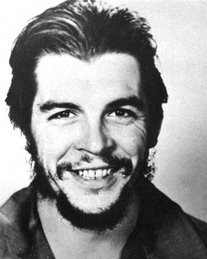| NUEVA DIRECTORA EJECUTIVA La comisión directiva de Memoria Abierta tiene el agrado de comunicar que, a partir del 3 de julio de 2017, Verónica Torras asumirá la dirección ejecutiva de nuestra institución. La nueva directora sucede a Valeria Barbuto, quien deja el cargo luego de cumplido el mandato de cinco años establecido para desempeñar esta tarea.
La gestión de Valeria se caracterizó por consolidar la institución luego de profundos cambios, por avanzar en su sostenimiento y por estrechar los vínculos con los nueve organismos que hoy integran la comisión directiva de Memoria Abierta. También intensificamos la cooperación en la región, aportando nuestra experiencia en el proceso de Memoria, Verdad y Justicia en nuestro país. Ella continuará participando del Directorio, órgano de gestión del Espacio Memoria y Derechos Humanos [ex ESMA], donde Memoria Abierta tiene su sede institucional, lo que nos mantendrá cerca y trabajando conjuntamente.
Verónica Torras es licenciada en Filosofía de la Facultad de Filosofía y Letras de la Universidad de Buenos Aires (UBA), doctoranda en Derechos Humanos de la Universidad Nacional de Lanús (UNLa) y cursa la Maestría en Análisis del Discurso de la Facultad de Filosofía y Letras de la UBA. Tiene amplia experiencia en comunicación institucional en ámbitos gubernamentales: fue subsecretaria de Comunicación del Gobierno de la Ciudad de Buenos Aires entre 2000 y 2004 y directora del Programa Memoria en Movimiento de la Secretaría de Comunicación Pública de la Nación entre 2011 y 2015. Además, se ha desempeñado en ámbitos no gubernamentales vinculados a la defensa de los derechos humanos: fue directora de Comunicación del Centro de Estudios Legales y Sociales (CELS) entre 2005 y 2010. Actualmente asesora a los equipos de Comunicación y de Memoria, Verdad y Justicia de esa organización, y al Instituto de Justicia y Derechos Humanos de la UNLA.
Auguramos grandes logros para esta nueva etapa. Estamos seguros de que los desafíos de estos tiempos exigen afianzar los logros obtenidos, impedir retrocesos, aportar a la reflexión de ciertas continuidades entre el pasado autoritario y el presente, y seguir bregando por la concreción de más Memoria, más Verdad y más Justicia.
NEW EXECUTIVE DIRECTOR The board of directors of Memoria Abierta is pleased to announce that, as of July 3, 2017, Verónica Torras will take office as the new executive director of our institution. She will be succeeding Valeria Barbuto, who leaves office after fulfilling the five-year term established to carry out this task.
Valeria's tenure stands out for the consolidation of the institution after deep changes, the progress in its support and the strengthening of the ties with the nine human rights groups that now make up the board of Memoria Abierta. Our organization has also intensified cooperation in the region, thanks to our experience in the process of Memory, Truth and Justice in our country. Valeria will continue taking part in the Board, a management body for the Memory and Human Rights Space [ex ESMA], where Memoria Abierta has its institutional headquarters, which will keep us close and working together.
Verónica Torras holds a degree in Philosophy and Literature School of the University of Buenos Aires (UBA) and is completing a doctorate in Human Rights from the National University of Lanús (UNLa) and a Masters in Discourse Analysis from the UBA's Philosophy and Literature School. She has extensive experience in institutional communication in governmental areas: she served as undersecretary of Communication of the Buenos Aires City Government between 2000 and 2004 and as director of the Memoria en Movimiento (Memory in Movement) Program of the Secretariat of Public Communication of the National Government between 2011 and 2015. In addition, Verónica served in non-governmental areas related to the defence of human rights: she was the director of Communication of the Center for Legal and Social Studies (CELS) between 2005 and 2010. She currently advises the Communication and Memory, Truth and Justice teams of that organization, and the Institute of Justice and Human Rights of UNLA.
We augur great accomplishments for this new stage. We are sure that the challenges of these times require strengthening the achievements, preventing setbacks, contributing to the reflection of certain continuities between the authoritarian past and the present, and continue to strive for the realization of more Memory, more Truth and more Justice. | |

